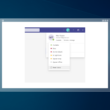Are you getting annoyed with lag issues on Apex Legends?
Lags are one of the worst things that you can encounter in any multiplayer game. But, when it comes to Apex Legends, your network’s performance could be one of the deciding factors of your game.
Although Apex Legends’ team tries their best to reduce lags on the game, occasional issues are inevitable and beyond their control.
If you’re here, we can assume that you are suffering from lag issues on Apex Legends.
Usually, lags on the game are caused by slow or unstable network connections. However, it can also be due to server-related issues, third-party apps, and malware that consume your bandwidth.
To help you out, we’ve decided to make a guide for fixing lag issues on Apex Legends.
Let’s get right into it!
1. Check Apex Legends Servers.
When you encounter lags on Apex Legends, there’s a chance that the game servers run into unexpected issues. There could be a high volume of users on the platform at the moment, and the game is struggling to keep up.
To verify this, visit Apex Legends’ Help Center, where they give constant updates about the game’s current status.
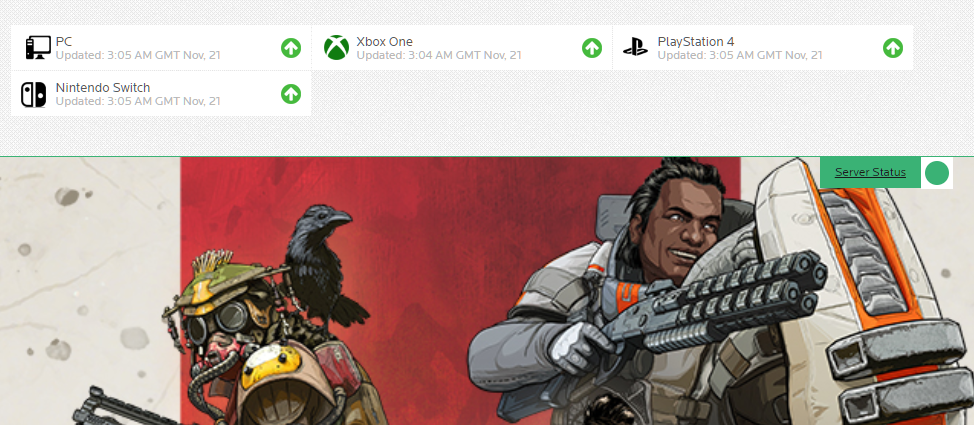
If the game servers are down, the only thing you can do is wait for their team to sort things out. On the other hand, you can proceed to the next solution below if there’s nothing wrong with Apex Legends.
2. Close Unnecessary Applications.
Apex Legends require a decent internet connection to work without issues. However, you may have a lot of applications running in the background, which consumes bandwidth. To avoid lags, turn off unnecessary apps on your computer.
Here’s what you need to do:
- First, press the Windows + X keys on your keyboard and click on Task Manager.
- Next, click the Network tab to view the programs that use the most bandwidth.
- Lastly, close the applications you’re not using.
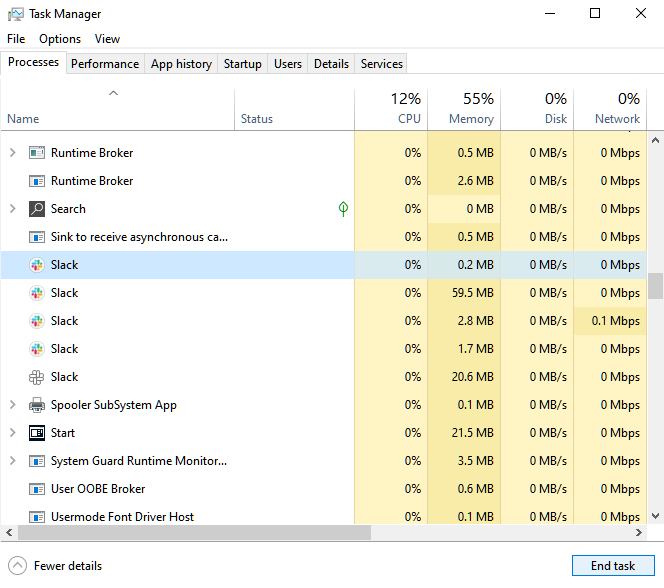
Once done, go back to your game and observe if you would still experience lags.
3. Restart Your Computer.
An unexpected error may have occurred on your system, which causes network connectivity issues. To fix this, restart your computer to reload your system and eliminate temporary bugs and glitches.
See the steps below to restart Windows:
- Access the Start Menu on your computer.
- Now, click on the Power Options tab.
- Finally, choose Restart to reboot your operating system.
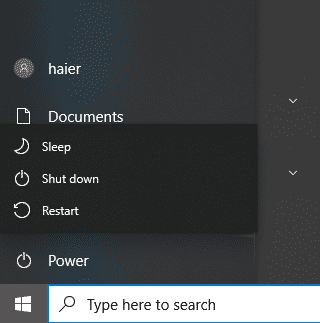
Try playing another game after restarting your PC to check if you would still encounter lags in-game.
4. Check Your Network Connection.
A slow or unstable connection is one of the most common causes of lags in Apex Legends. When your network is not functioning properly, expect online games and apps not to work as well.
To confirm if your network is the culprit, run a test using Fast.com to measure its upload and download bandwidth.
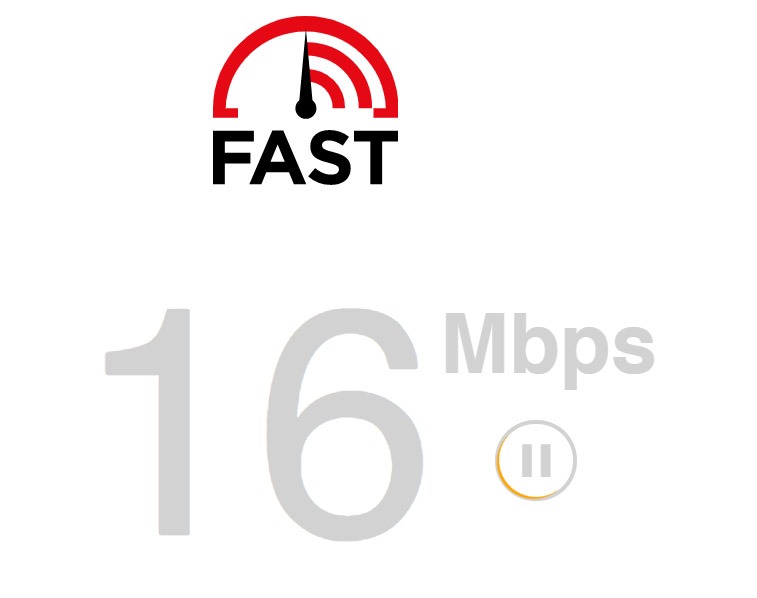
If your connection is running slow, restart your modem or router to re-establish the link between your ISP’s servers and your router. Unplug your device from the outlet and wait for 5 to 10 seconds before plugging it back in.
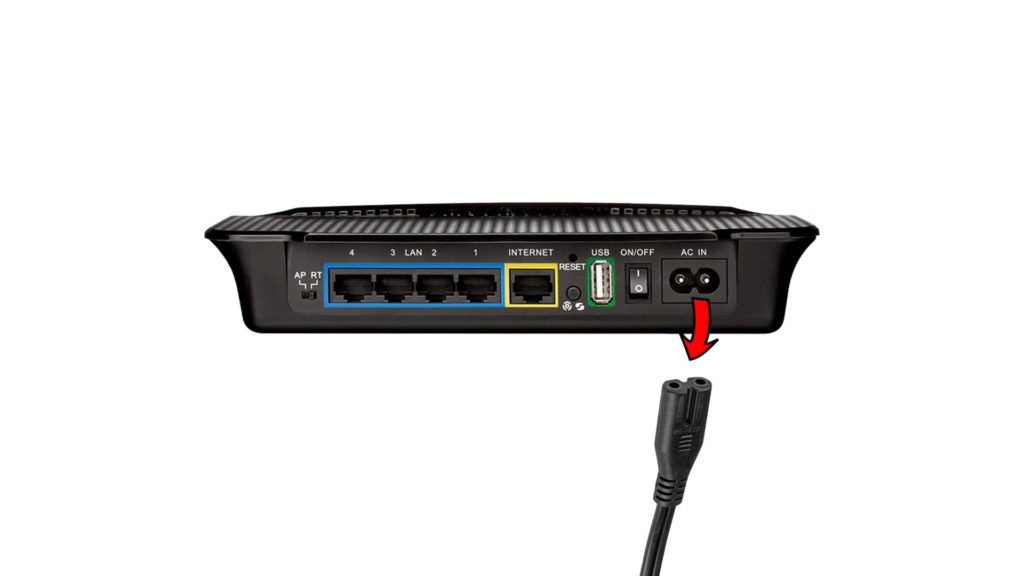
Perform another speed test afterward to check if the problem is solved. If you continue to experience network-related issues, contact your ISP and ask them to fix their service.
5. Check Your Game Server.
There are several servers available in Apex Legends, which are optimized for different locations in the world. If you experience lag issues on Apex Legends, it’s possible that you’re not using the correct server for your region.
To confirm this, see the steps below to guide you on the process:
- Launch Apex Legends on your computer and hit the TAB key once you reach the main menu.
- After that, the list of game servers should appear.
- Finally, select the server with the lowest Ping and Packet Loss.
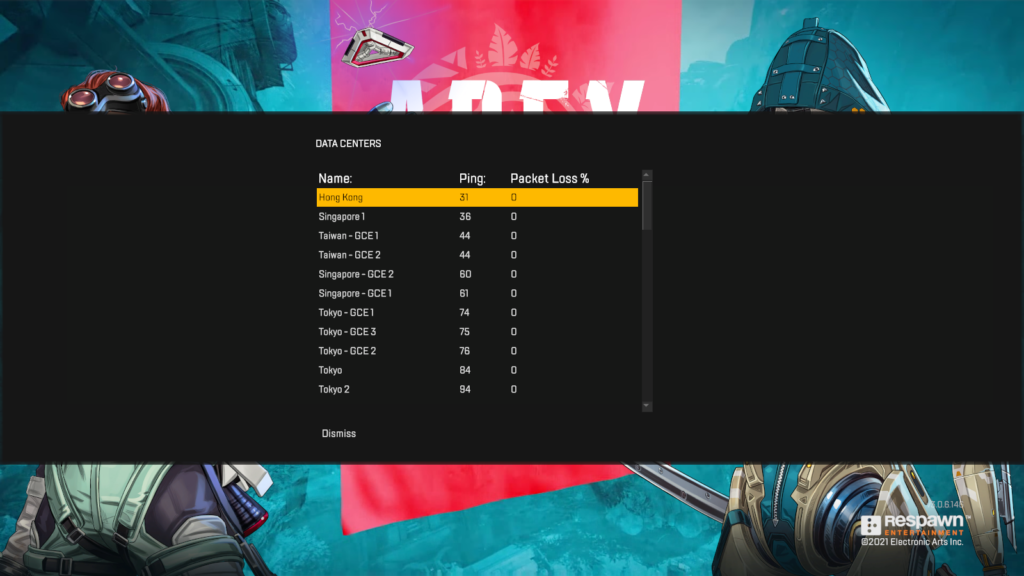
Play another game afterward to check if the problem is solved.
6. Run Malwarebytes.
Malware and other viruses are malicious files that infiltrate your system and use its resources for various activities. They can also consume your bandwidth, which can affect your network’s performance.
If you keep experiencing lag issues on Apex Legends, download Malwarebytes on your system and use its ‘Full System Scan’ feature. This will allow the tool to scan your directory for infected files and programs and automatically remove them.
Malwarebytes is available for all major platforms, including Windows, macOS, iOS, and Android.
7. Update Your Network Drivers.
You can also try updating your network drivers if you experience connectivity issues on other applications as well. Your current network driver could be outdated or have an underlying problem.
Here’s what you need to do to update your drivers:
- First, open the Quick Menu on your computer by pressing the Windows + X keys.
- After that, click on Device Manager.
- Now, expand the Network Adapters tab and right-click on your network device.
- Lastly, choose Update Driver.
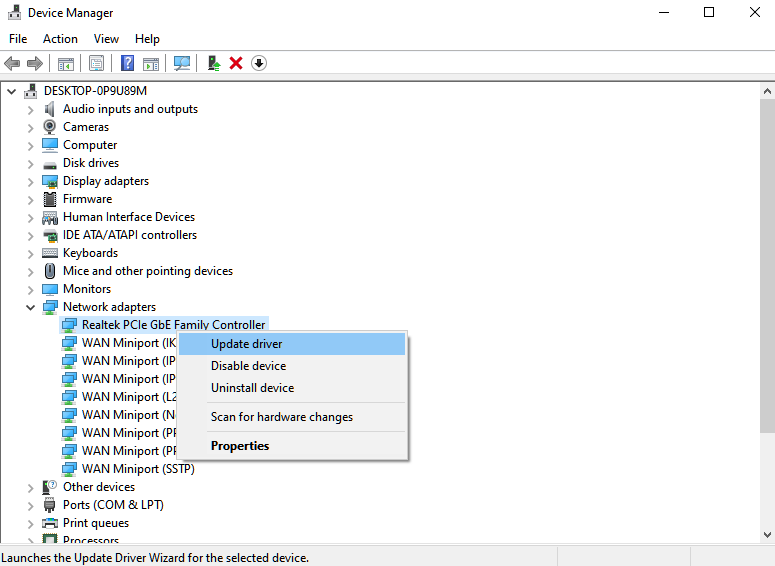
Restart your computer after updating your drivers and see if you would still encounter lags on Apex Legends.
8. Report the Problem to Apex Legends.
If you still experience lag issues on Apex Legends, it’s time that you let the experts handle the situation.
Visit Apex Legends’ Help Center and get in touch with their team to ask for assistance regarding the issue you’ve been experiencing on the game. While waiting for a response, browse the other guides on their page and see if you can find viable solutions.

That ends our guide for fixing lag issues on Apex Legends. If you have questions, please leave a comment below, and we’ll do our best to answer them.
If this guide helped you, please share it. 🙂




